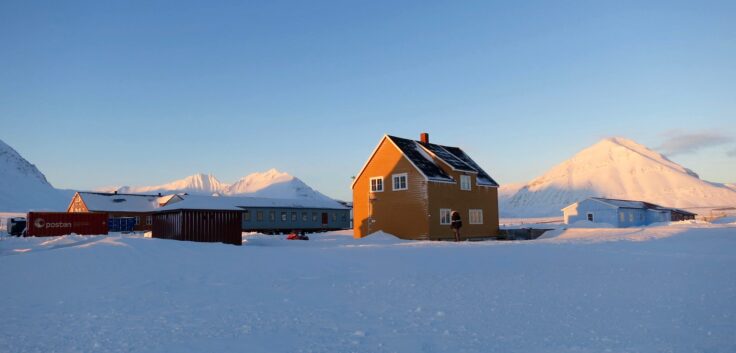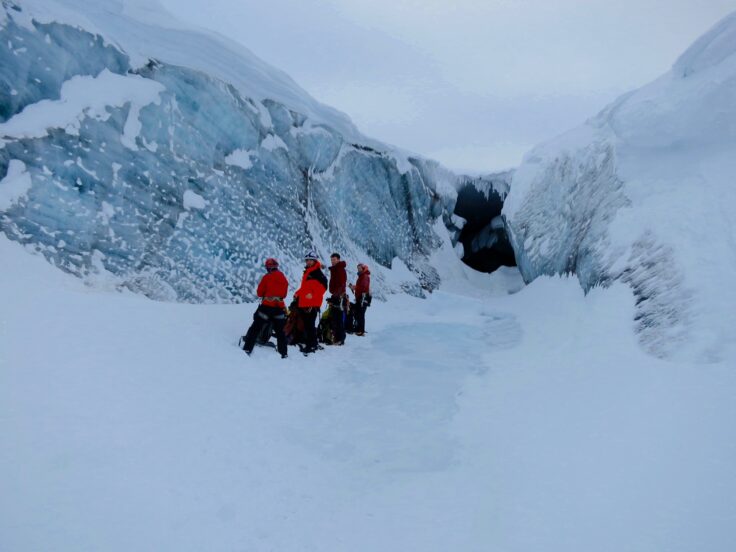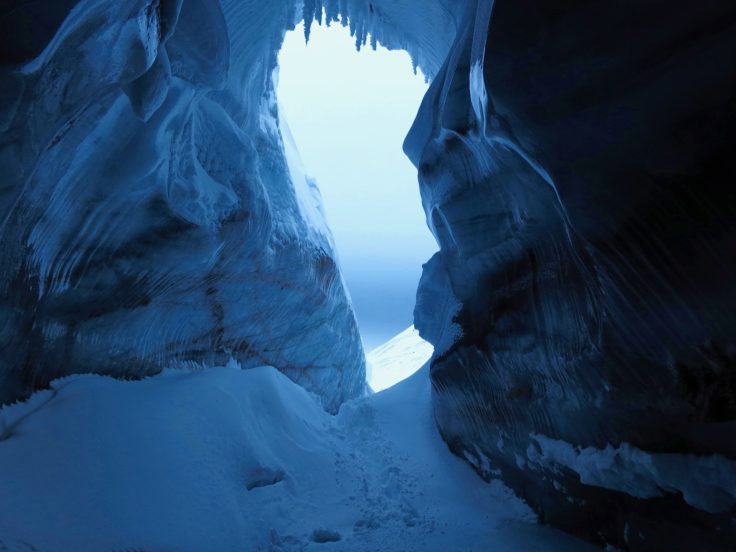Live from the Arctic!
16 March, 2017
This is not my average Arctic field season. Usually the months before departure are spent in a tiered state of preparation – getting field equipment ready and sending it North, buying food, checking field clothes, cords, cables, chargers, buying the last few comforts required for the months ahead. This time, I hurriedly threw a few time-tested cold weather articles into a small duffle bag and headed to Heathrow to catch a plane to lovely Ny-Ålesund, at 79ºN in the Norwegian High Arctic archipelago of Svalbard. And where my usual field season is out on lakes taking sediment cores, here I am mostly glued to Skype on a laptop.

The purpose of the trip is to assist with a two-week Arctic science outreach programme called Arctic Live! which is the based out of UK Arctic Research Station and supported by the NERC Arctic Office based at the British Antarctic Survey (BAS). Arctic Live! livestreams polar scientists into classrooms around the UK and the world to answer questions about the Arctic, and what it is like to live and work here. This takes place via one-on-one classroom skype sessions and daily YouTube Live Q & A, reaching well over 5500 school kids in the brief 2 weeks that we are here.
The UK Arctic Research Station is one of 11 national research stations here in Ny-Ålesund and is managed by BAS gem, Nick Cox, who is now in his 42nd year working for BAS in the polar regions. In addition to Nick, there is me and Jamie Buchanan-Dunlop, the founder of Digital Explorer and Arctic Live!, three glaciologists from the University of Aberystwyth who are documenting the meltwater channels that snake through the nearby Austre Broggerbreen, and Catrin Thomas, a field GA fresh from her 15th season south with BAS.

We are all here for a 2 week Arctic stint. Most days, Jamie and I are doing the bread and butter work of Arctic Live! talking with classrooms around the world, assisted by Digital Explorer in London as well as several BAS scientists who are skyping from their offices. Skyping enthusiastically about any topic for 6-8 hours a day can be exhausting, but it is broken up by snowmobiling up onto the glacier, helping with and documenting the work the glaciologists are doing in the meltwater channels, and also by going for an evening ski around the village in the breathtaking evening sun.
It is a privilege to do this kind of work. I get to share with all sorts of students from all over the world my love for and knowledge of one of the most beautiful and rapidly changing places on the planet. And when my daily routine involves watching the first sun of the year crest distant mountains and glaciers, walking by caribou and ptarmigan en route to lunch, and hearing the collective gasp from a distant classroom when you show them the icy, snowy landscape surrounding the station, that’s pretty cool too.
